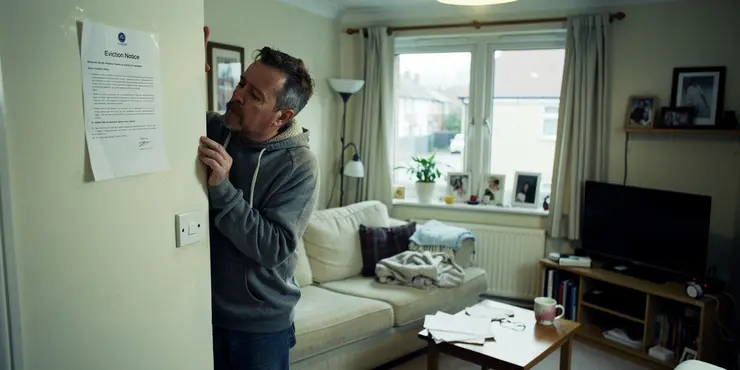
Find Help
More Items From Ergsy search
-
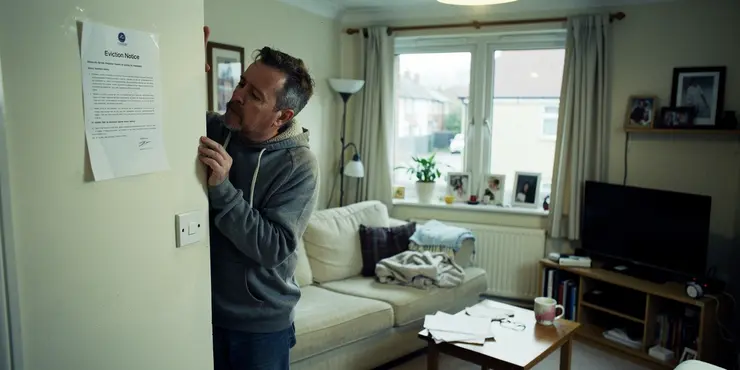
What are my rights during the eviction process?
Relevance: 100%
-

Are there changes to the eviction process?
Relevance: 77%
-
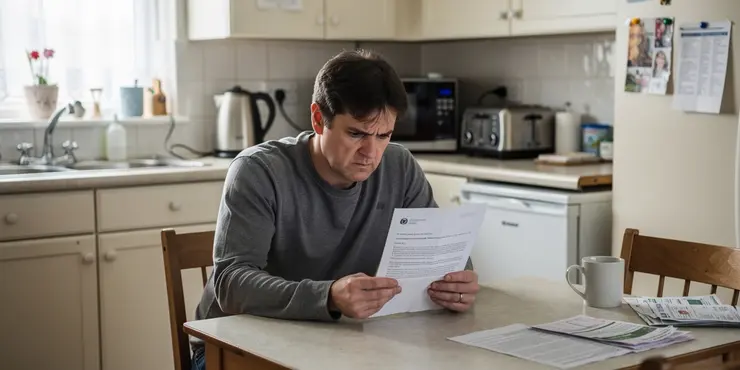
What can I do if I believe my eviction is retaliatory?
Relevance: 76%
-
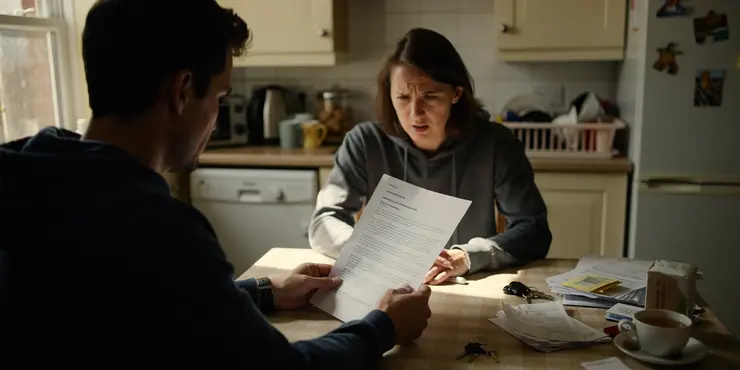
What can I do if my landlord wants to evict me?
Relevance: 76%
-

Can a landlord lock me out or remove my belongings to evict me?
Relevance: 73%
-

Can my landlord evict me without providing a reason?
Relevance: 72%
-

Can I stop an eviction if I catch up on rent payments?
Relevance: 71%
-
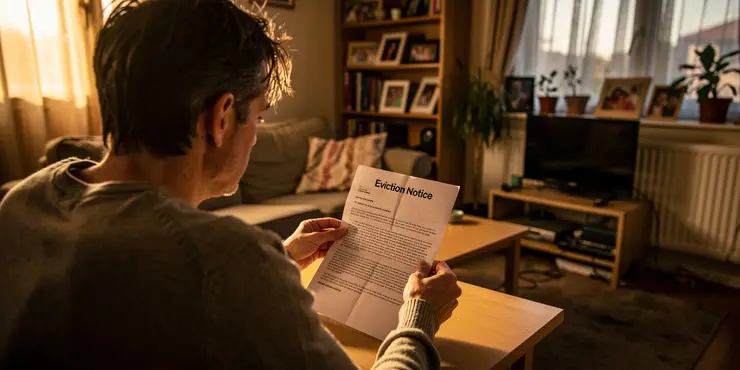
What should I do if I receive an eviction notice from my landlord?
Relevance: 71%
-

Can a landlord evict me for complaining about property conditions?
Relevance: 71%
-

Can I negotiate with my landlord to avoid eviction?
Relevance: 71%
-
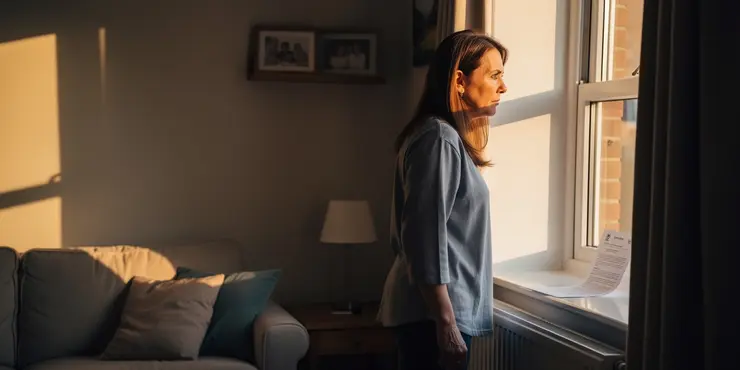
Can I appeal a court's eviction decision?
Relevance: 71%
-
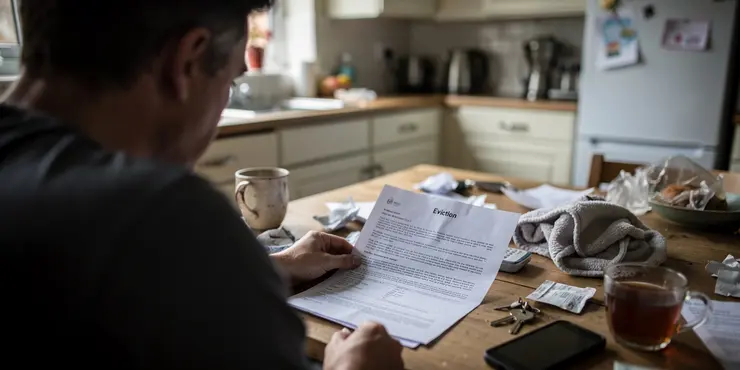
Does filing for bankruptcy stop an eviction?
Relevance: 69%
-
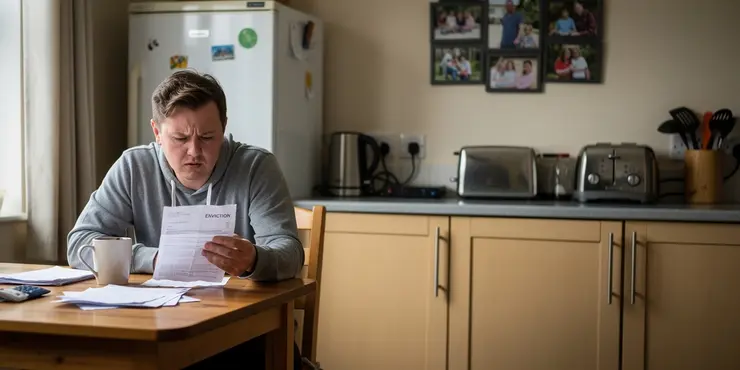
How can I contest or challenge the eviction?
Relevance: 68%
-

What should I do if I can't afford a lawyer for the eviction process?
Relevance: 68%
-

What are the consequences of having an eviction on my record?
Relevance: 68%
-

Has the notice period for eviction changed?
Relevance: 68%
-
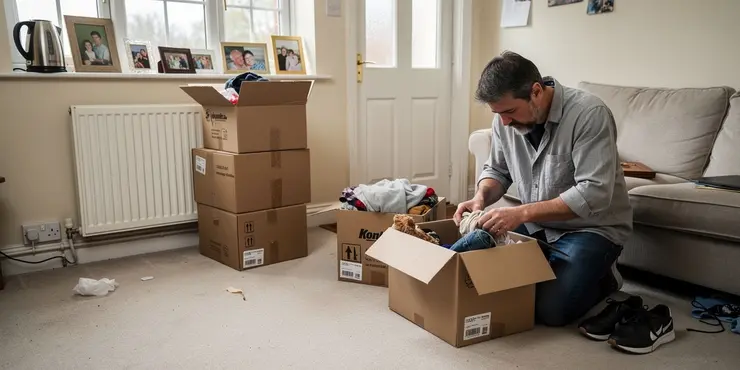
What happens if I stay beyond the eviction deadline?
Relevance: 67%
-

How can I prepare for an eviction court hearing?
Relevance: 66%
-

How do I find alternative housing quickly if evicted?
Relevance: 64%
-

How long do I have to move out after receiving an eviction notice?
Relevance: 64%
-

Can eviction affect my credit score?
Relevance: 63%
-

Are there any government programs that can help me avoid eviction?
Relevance: 63%
-

Is mediation an option to resolve eviction disputes?
Relevance: 62%
-

Understanding Your Rights: Legal Support for Families During Economic Turbulence
Relevance: 54%
-

The Human Rights Act
Relevance: 44%
-

What are my rights as a Gig Worker?
Relevance: 40%
-

How are landlord-tenant issues resolved in property litigation?
Relevance: 40%
-

How can shareholders enforce their rights?
Relevance: 39%
-
Do I have a right to see my medical records?
Relevance: 38%
-

Do gig workers have the right to unionize?
Relevance: 38%
-

What can tenants do if they are affected by the cuts?
Relevance: 38%
-

What rights do residents have in a care home?
Relevance: 37%
-

What legal rights do I have as a medical patient in the EU?
Relevance: 37%
-

Is job security a right for gig workers?
Relevance: 36%
-
Do I have a right to see my police records?
Relevance: 36%
-

What new protections are included for tenants?
Relevance: 36%
-

Do I have the right to control my working hours?
Relevance: 36%
-

What are the new Tenancy Law Reforms in the UK in 2025?
Relevance: 35%
-

Pension rights for Firefighters in the UK
Relevance: 35%
-
What is the impact of the 2026 changes on grandparent visitation rights?
Relevance: 35%
Your Rights During the Eviction Process in the UK
Facing eviction can be a stressful experience, but it's important to know that as a tenant in the UK, you have specific rights that protect you during this process. Understanding these rights is crucial in ensuring that any eviction process is conducted fairly and legally.
Notice Requirements
Your landlord must follow the proper protocol before evicting you, which includes serving you a valid notice. For Assured Shorthold Tenancies (ASTs), landlords usually serve either a Section 21 or Section 8 notice. A Section 21 notice does not require a reason for eviction, but it must comply with specific regulations, such as providing at least two months’ notice. On the other hand, a Section 8 notice is used when the tenant has breached the tenancy agreement, such as being in arrears or causing damage to the property.
Challenge an Eviction Notice
As a tenant, you have the right to challenge an eviction notice if you believe it’s been served improperly or unfairly. This could involve disputing the reasons cited in a Section 8 notice or highlighting any procedural errors in a Section 21 notice. In such cases, seeking legal advice can help you understand your position and whether you might have grounds to contest the notice.
Due Process
Even after being served with a notice, you do not have to leave your home immediately. A landlord cannot forcibly remove you from the property without a court order. If you do not vacate the property by the end date specified in the notice, the landlord must apply to the court for a possession order. You have the right to attend the court hearing, present your case, and provide evidence to the judge.
Illegal Eviction and Harassment
It is illegal for a landlord to try and evict you without following the correct legal process. Actions such as changing locks, removing your belongings, or harassing you into leaving are against the law. If you experience any form of illegal eviction or harassment, you can contact local housing authorities or organisations like Shelter for support and possibly take legal action against your landlord.
Get Support
If you're facing eviction, it's important to seek help as soon as possible. There are numerous resources available, such as legal aid services and housing charities like Shelter and Citizens Advice, which offer guidance and support. These organisations can provide you with advice specific to your situation and help you navigate the complexities of the eviction process. Remember, knowing your rights and acting on them can make a significant difference in how the situation is resolved.
Your Rights During the Eviction Process in the UK
Being told to move out of your home can be very upsetting. But it is important to know that you have rights as a renter. These rights protect you and make sure everything is done fairly and legally.
Notice Requirements
Your landlord must do certain things before asking you to leave. They have to give you a notice. For many types of rental agreements, called Assured Shorthold Tenancies, there are two types of notices:
- Section 21 notice: This means the landlord doesn’t need a reason to ask you to leave, but they have to give you at least 2 months’ notice.
- Section 8 notice: This is used if they say you broke the rental agreement, like not paying rent or damaging the place.
Challenge an Eviction Notice
If you think the notice is wrong or not fair, you can challenge it. This means you can tell someone you think there is a mistake. It's a good idea to get help from a legal adviser. They can help you understand if you can fight the notice.
Due Process
Even if you get a notice, you don’t have to leave your home right away. Your landlord cannot make you leave without a court order. If you stay after the notice ends, the landlord must ask the court to make you leave. You can go to the court and explain your side.
Illegal Eviction and Harassment
Your landlord cannot make you leave without following the right steps. They can't change the locks, take your things, or try to scare you into leaving. This is against the law. If this happens, you can get help from local housing offices or groups like Shelter, and you might be able to take legal action.
Get Support
If you are facing eviction, get help quickly. There are places that can help you, like legal aid services, Shelter, and Citizens Advice. They can give you advice for your situation. Knowing and using your rights can help you a lot.
Frequently Asked Questions
What is an eviction notice and how should I respond to it?
An eviction notice is a legal document from your landlord indicating they want you to leave the property. You should review it carefully, check for any errors, and consider seeking legal advice or contacting local tenant advocacy groups.
How much notice must a landlord give before eviction?
The amount of notice varies by state or country and depends on the reason for eviction. Typically, it ranges from a few days to several weeks.
Can I be evicted without a court order?
No, landlords generally cannot legally evict a tenant without obtaining a court order following due legal process.
What is considered retaliatory eviction?
Retaliatory eviction is when a landlord tries to evict a tenant for exercising their legal rights, such as complaining about unsafe conditions. This type of eviction is often illegal.
Are there protections against eviction for non-payment of rent?
Some jurisdictions have eviction protections for non-payment of rent, particularly during emergencies. You should check local laws for specific protections.
What can I do if I receive an illegal eviction notice?
If you receive an illegal eviction notice, document everything and contact a tenant lawyer or local tenant union for legal advice.
Can I be evicted during a lease term?
Yes, but usually only for specific reasons like violating lease terms, non-payment of rent, or illegal activities on the premises.
What constitutes a self-help eviction?
A self-help eviction occurs when a landlord tries to remove a tenant without a court order, for example, by changing locks or shutting off utilities, which is illegal in many places.
How can I defend myself against an eviction lawsuit?
You can present evidence and arguments showing that the eviction is unjustified, such as disputing claims of lease violations or proving timely rent payments. Legal assistance is recommended.
What happens if the landlord wins the eviction lawsuit?
If the landlord wins, you'll usually be given a set amount of time to move out. If you don't leave by then, the landlord may get a court order for forceful eviction.
Can I negotiate with my landlord to avoid eviction?
Yes, negotiating with your landlord is often recommended. You might discuss payment plans or resolve the issues that led to the eviction notice.
What rights do I have to retrieve my belongings after eviction?
Tenants often have a limited time to reclaim their possessions after an eviction. The timeframe and process vary by jurisdiction.
Are there emergency assistance programs to help avoid eviction?
Yes, many areas offer rental assistance programs to help tenants avoid eviction. You can often find information through local government websites or social services.
Can I be evicted for having a pet if my lease prohibits it?
Yes, if your lease explicitly prohibits pets, having one can be a violation and grounds for eviction unless you negotiate an exception with your landlord.
What should I do if I suspect my eviction is due to discrimination?
If you suspect discrimination, document everything and file a complaint with your local housing authority or consult a lawyer specializing in discrimination cases.
Can I still be evicted if I pay rent after receiving an eviction notice?
Possibly. Depending on the reason for the eviction, paying rent late might not stop the process if other violations are claimed. Always confirm with your landlord or seek legal guidance.
What are my rights to contest an eviction in court?
Tenants have the right to defend themselves in court, present evidence, and call witnesses. It is advisable to have legal assistance.
Can my landlord evict me due to renovation plans?
In some areas, landlords can evict tenants for substantial renovations, but they often must provide ample notice or relocation assistance, depending on local laws.
What is a 'pay or quit' notice?
A 'pay or quit' notice is an eviction notice demanding that a tenant pay overdue rent or vacate the premises within a specified period.
How do eviction processes differ for subsidized housing?
Eviction processes for subsidized housing often involve additional steps and protections for tenants, as compliance with both local and federal regulations is required.
What is an eviction notice and what should I do if I get one?
An eviction notice is a letter telling you to leave your home. It might come from your landlord.
If you get an eviction notice, here are some steps you can take:
- Stay calm and read the letter carefully. It will explain why you need to leave.
- Tell a trusted adult, friend, or family member about the letter. They can help you understand it.
- Contact a local advice center or a lawyer. They can give you help and support.
- Keep a copy of the eviction notice for your records.
Remember, you are not alone, and there are people who can help you.
An eviction notice is a paper from your landlord saying they want you to move out. Read it carefully, look for any mistakes, and think about asking a lawyer for help or talking to groups that help renters.
How long before a landlord can make you move out?
The time you get to move out can be different depending on where you live. It also depends on why you have to move out. Usually, you get a few days to a few weeks' notice.
Can someone make me leave my home without asking a judge first?
No, landlords cannot make a tenant leave without first going to court and getting permission.
What is retaliatory eviction?
Retaliatory eviction is when a landlord tries to make a tenant leave because the tenant spoke up about their legal rights. This can happen if the tenant complained about things being unsafe. This kind of eviction is often against the law.
Can I get help if I can't pay my rent?
If you can't pay your rent, there might be rules to help you stay in your home. These rules can stop you from being forced to leave right away.
It is a good idea to talk to someone who knows the rules, like a helper or adviser. They can tell you what to do and if there are special rules where you live.
Tools like dictionaries or apps that read out loud can help you understand more about your rights.
Some places have rules to help if you can't pay rent, especially in emergencies. Check local rules to see what help you can get.
What should I do if I get a note telling me to leave my home but it is not allowed?
If you get a note telling you to leave your home, and it is not allowed, here's what you can do:
- Stay calm. Do not leave your home right away.
- Tell a trusted adult, like a family member or friend.
- Ask for help from a tenant support group or a housing advisor. They know the rules and can give advice.
- Keep the note in a safe place. Do not throw it away.
- Write down everything that happens, like dates and times.
- Get a lawyer to help if you can. Some lawyers offer free help.
Remember, you have rights. You do not have to leave without checking first.
If you get a letter that says you have to leave your home, but it doesn't seem right, write down what happens and talk to a lawyer who helps renters or a local group that helps renters for advice.
Can I be made to leave my home during a lease?
No, you usually cannot be made to leave your home during a lease unless there is a really good reason. A lease is a promise between you and the person you rent from. It says how long you can stay.
Here are some reasons you might have to leave early:
- You broke a big rule in your lease, like not paying rent.
- You damaged the property on purpose.
- You caused trouble for other people.
If you have to leave, the person you rent from has to tell you why. They must also give you some time to find a new place. They cannot just make you leave right away.
If you need help, you can:
- Talk to a friend or family member.
- Speak with someone who knows about housing and can help, like a housing advisor.
Remember, asking for help is always okay!
Yes, but mainly for special reasons. These reasons could be: breaking the rules of the rental agreement, not paying rent, or doing illegal things where you live.
If you need help understanding this, you can:
- Ask someone you trust to explain it to you.
- Use an online dictionary to understand hard words.
- Write notes or draw pictures to help remember.
What is a self-help eviction?
A self-help eviction is when a landlord tries to make a tenant leave without following the law. This can happen if they: - Change the locks - Turn off the water or electricity - Remove belongings If you think this is happening to you, here are some things you can do: - **Talk to someone who can help.** This could be a friend, family member, or someone who knows about housing rules. - **Call a local housing advice service.** They can tell you more about your rights and what to do next. - **Keep notes.** Write down what happened, the dates, and take pictures if you can. Remember, a landlord must follow the law to make someone leave their home.A self-help eviction is when a landlord tries to make a tenant leave without asking a court first. This can happen if the landlord changes the locks or turns off the water or electricity. In many places, doing this is against the law.
What can I do if my landlord tries to make me leave my home?
You can show proof and reasons why being forced to leave is not fair. You can say the rules were not broken or show you paid rent on time. It is a good idea to get help from a lawyer.
What if the landlord wins the case to make you leave your home?
If the landlord wins, you may have to move out. The court will tell you when to leave. You can ask for help from a friend or family. You can also talk to a lawyer for advice. They can help you understand what to do next.
Use tools like pictures or audio recordings to help remember the information. Make a plan for finding a new place to live.
If the landlord wins, you will have a certain amount of time to move out. If you don't leave in that time, the landlord can ask the court to make you leave.
Can I talk to my landlord to stop being kicked out?
Yes, it is a good idea to talk with your landlord. You can talk about how to pay your rent or fix the problems that caused the eviction notice.
Can I get my things after I have been evicted?
After someone is evicted, they sometimes have only a short time to get their things back. The time and rules for this can be different depending on where you live.
Helpful tip: You can ask for help from someone you trust, like a family member or friend, to understand the rules better. You can also use a calendar to keep track of the days.
Can I get help to stop being kicked out of my home?
Yes, many places have programs to help people pay their rent. This can stop them from losing their homes. You can find help on local government websites or by talking to social services.
Can I be kicked out for having a pet if my lease says no pets?
If your lease says no pets, you might get in trouble if you have one. Your landlord could ask you to leave. But you can talk to your landlord and ask if you can keep a pet.
What if I think I'm being evicted because someone is treating me unfairly?
If you think you are being forced to leave your home because someone is not being fair:
- Talk to someone: Find a trusted friend, family member, or support worker. They can help you understand what's happening.
- Get help: Call a support line or contact a local advice center. They can give you advice and support.
- Keep records: Write down dates and what happened. This can help if you need to tell someone about it later.
- Know your rights: Everyone has the right to be treated fairly. You can ask someone to help you learn about your rights.
- Use tools: There are apps and websites that can help you understand your rights and get support.
If you think someone is treating you unfairly, write down everything that happens. You can tell a local housing office or talk to a special lawyer who knows about unfair treatment.
If I pay my rent after getting a notice to leave, can I stay in my home?
You might still have to move out. If you pay rent late, it might not stop your landlord from asking you to leave. This can happen if you broke other rules too. Talk to your landlord to find out more or get help from a lawyer.
What can I do if I am told to leave my home?
If someone says you have to leave your home, you can often ask a judge to let you stay. This is called going to court. A judge is a person who helps decide what is fair. Here are things you can do:
- Ask for help from a lawyer. They are people who know a lot about rules and can help you.
- Find out what the rules say about leaving your home. They might be different depending on where you live.
- Keep all letters or papers about your home. These are important.
- Go to court if you need to. Tell them why you want to stay.
Ask someone you trust or a support worker to help you. They can explain things or go with you if you need to. You are not alone.
People who rent homes can go to court to tell their side of the story. They can show proof and ask people to talk for them. It is a good idea to have a lawyer help them.
Can my landlord make me leave because they want to fix up the building?
Sometimes, people who own homes can ask renters to move out if they need to do big changes to the house. But they usually must tell renters early or help them find a new place to live. This depends on the rules where you live.
What is a 'pay or quit' notice?
A 'pay or quit' notice is a letter you get if you do not pay your rent. It tells you to pay the rent you owe or to leave the house.
This letter comes from the person you rent your home from. It says you need to pay your rent soon. If you do not pay, you might need to move out.
To help you understand and remember, you can:
- Ask a friend or family member to read it with you.
- Use a calendar to track when your rent is due.
- Write down the amount you need to pay.
A 'pay or quit' notice is a letter that tells a person renting a home to pay their late rent or move out by a certain date.
How is getting kicked out different for homes with help paying rent?
Getting evicted from homes with money help from the government can be slower. Extra steps and rules keep people safe. These rules come from local and national places.
For help with reading, you can use tools like audiobooks or apps that read text out loud.
Useful Links
This website offers general information and is not a substitute for professional advice.
Always seek guidance from qualified professionals.
If you have any medical concerns or need urgent help, contact a healthcare professional or emergency services immediately.
Some of this content was generated with AI assistance. We’ve done our best to keep it accurate, helpful, and human-friendly.
- Ergsy carfully checks the information in the videos we provide here.
- Videos shown by Youtube after a video has completed, have NOT been reviewed by ERGSY.
- To view, click the arrow in centre of video.
- Most of the videos you find here will have subtitles and/or closed captions available.
- You may need to turn these on, and choose your preferred language.
- Go to the video you'd like to watch.
- If closed captions (CC) are available, settings will be visible on the bottom right of the video player.
- To turn on Captions, click settings .
- To turn off Captions, click settings again.
More Items From Ergsy search
-

What are my rights during the eviction process?
Relevance: 100%
-

Are there changes to the eviction process?
Relevance: 77%
-

What can I do if I believe my eviction is retaliatory?
Relevance: 76%
-

What can I do if my landlord wants to evict me?
Relevance: 76%
-

Can a landlord lock me out or remove my belongings to evict me?
Relevance: 73%
-

Can my landlord evict me without providing a reason?
Relevance: 72%
-

Can I stop an eviction if I catch up on rent payments?
Relevance: 71%
-

What should I do if I receive an eviction notice from my landlord?
Relevance: 71%
-

Can a landlord evict me for complaining about property conditions?
Relevance: 71%
-

Can I negotiate with my landlord to avoid eviction?
Relevance: 71%
-

Can I appeal a court's eviction decision?
Relevance: 71%
-

Does filing for bankruptcy stop an eviction?
Relevance: 69%
-

How can I contest or challenge the eviction?
Relevance: 68%
-

What should I do if I can't afford a lawyer for the eviction process?
Relevance: 68%
-

What are the consequences of having an eviction on my record?
Relevance: 68%
-

Has the notice period for eviction changed?
Relevance: 68%
-

What happens if I stay beyond the eviction deadline?
Relevance: 67%
-

How can I prepare for an eviction court hearing?
Relevance: 66%
-

How do I find alternative housing quickly if evicted?
Relevance: 64%
-

How long do I have to move out after receiving an eviction notice?
Relevance: 64%
-

Can eviction affect my credit score?
Relevance: 63%
-

Are there any government programs that can help me avoid eviction?
Relevance: 63%
-

Is mediation an option to resolve eviction disputes?
Relevance: 62%
-

Understanding Your Rights: Legal Support for Families During Economic Turbulence
Relevance: 54%
-

The Human Rights Act
Relevance: 44%
-

What are my rights as a Gig Worker?
Relevance: 40%
-

How are landlord-tenant issues resolved in property litigation?
Relevance: 40%
-

How can shareholders enforce their rights?
Relevance: 39%
-
Do I have a right to see my medical records?
Relevance: 38%
-

Do gig workers have the right to unionize?
Relevance: 38%
-

What can tenants do if they are affected by the cuts?
Relevance: 38%
-

What rights do residents have in a care home?
Relevance: 37%
-

What legal rights do I have as a medical patient in the EU?
Relevance: 37%
-

Is job security a right for gig workers?
Relevance: 36%
-
Do I have a right to see my police records?
Relevance: 36%
-

What new protections are included for tenants?
Relevance: 36%
-

Do I have the right to control my working hours?
Relevance: 36%
-

What are the new Tenancy Law Reforms in the UK in 2025?
Relevance: 35%
-

Pension rights for Firefighters in the UK
Relevance: 35%
-
What is the impact of the 2026 changes on grandparent visitation rights?
Relevance: 35%


